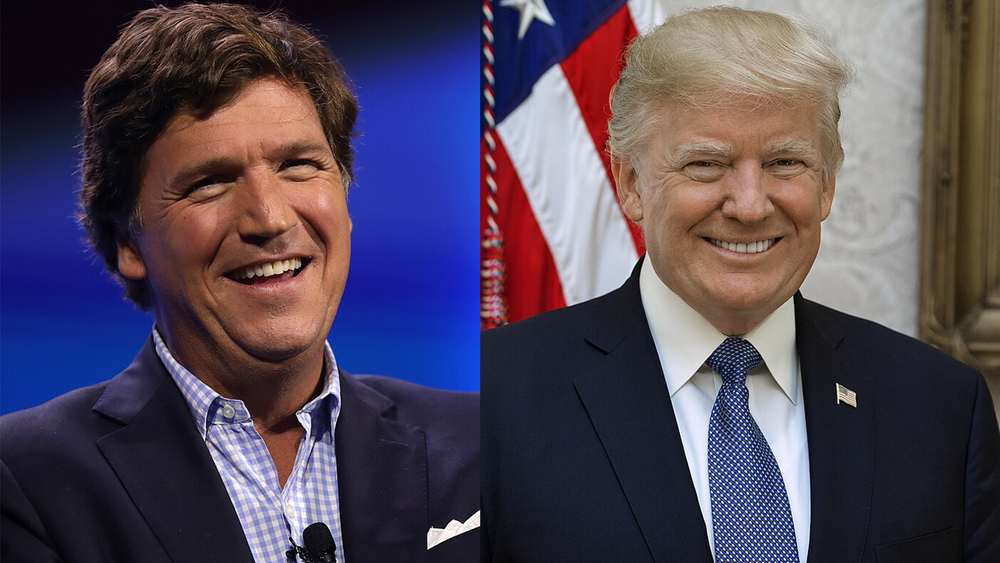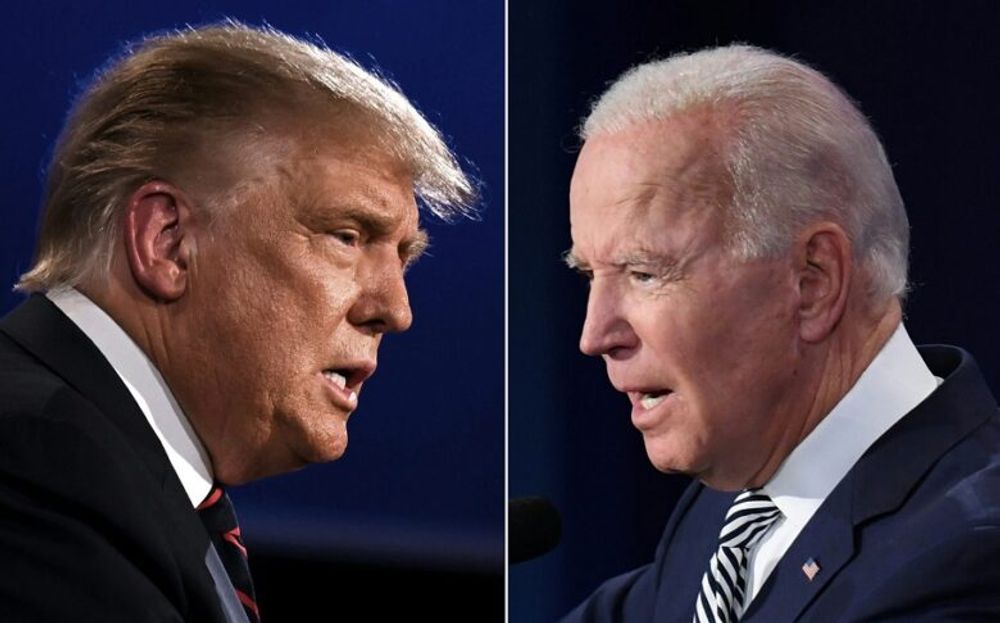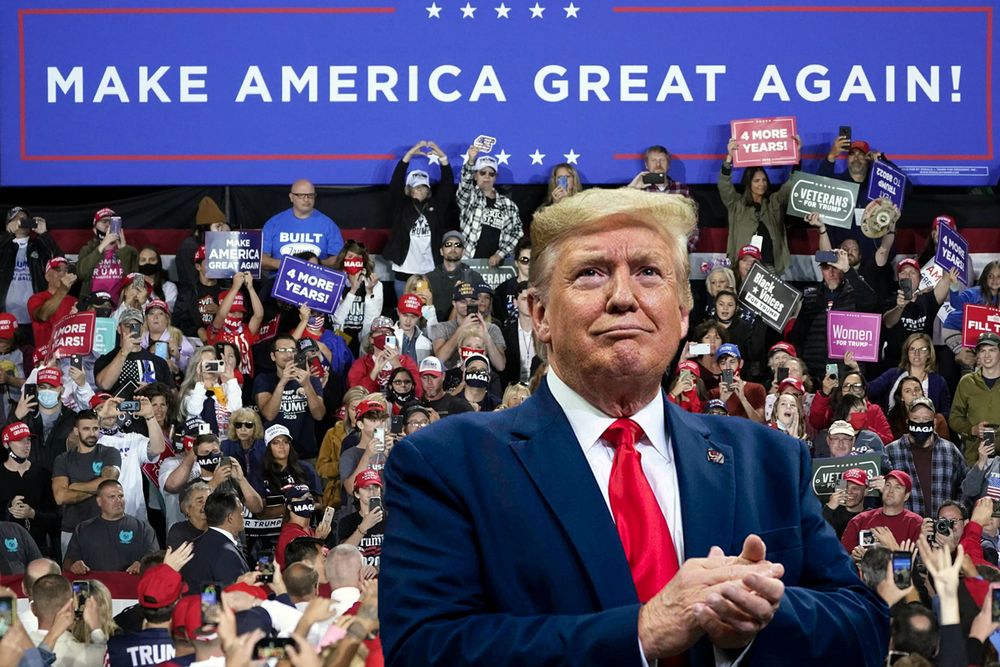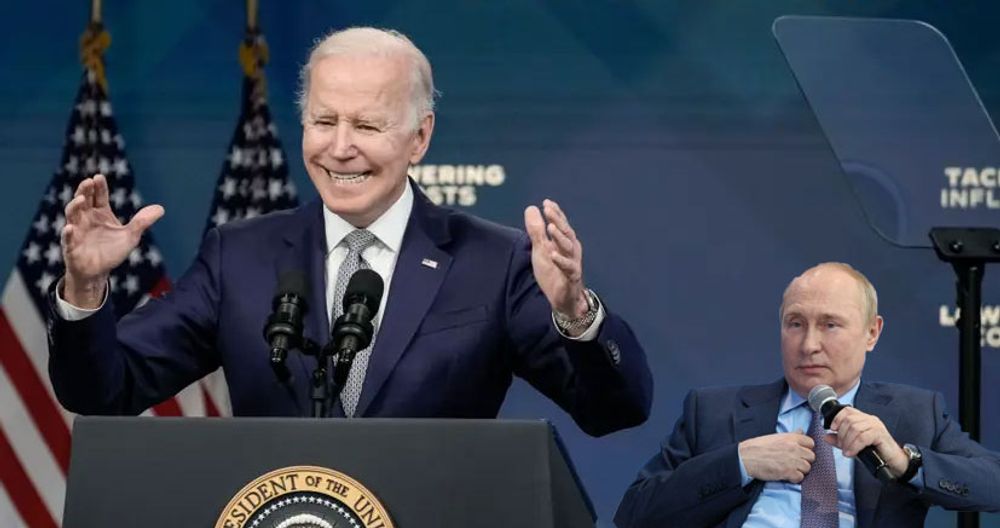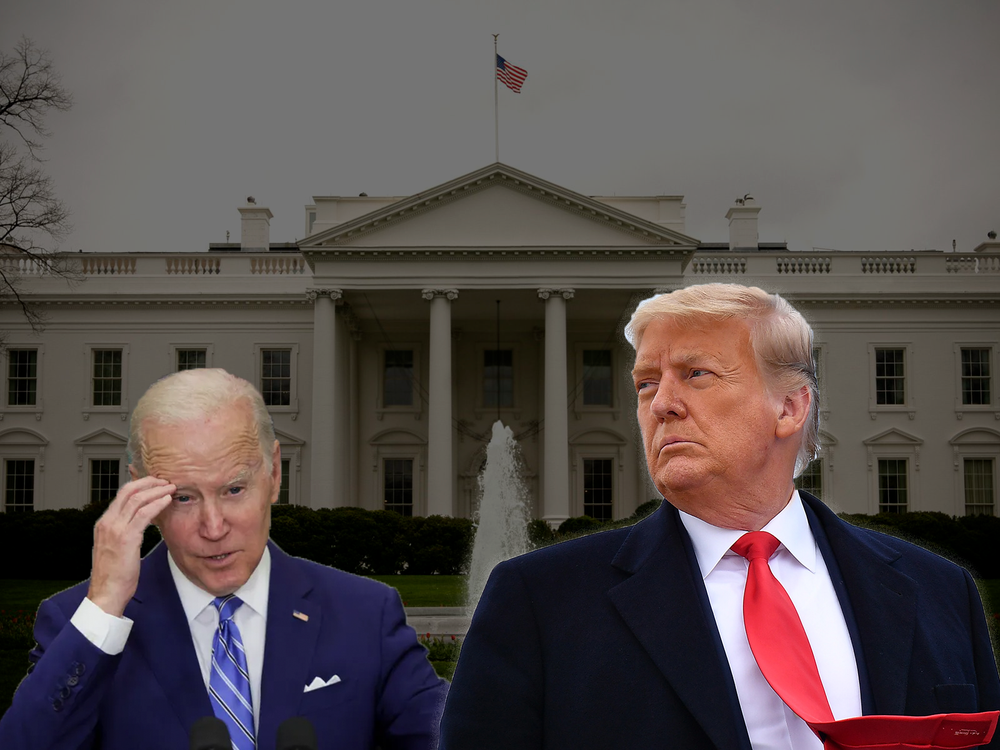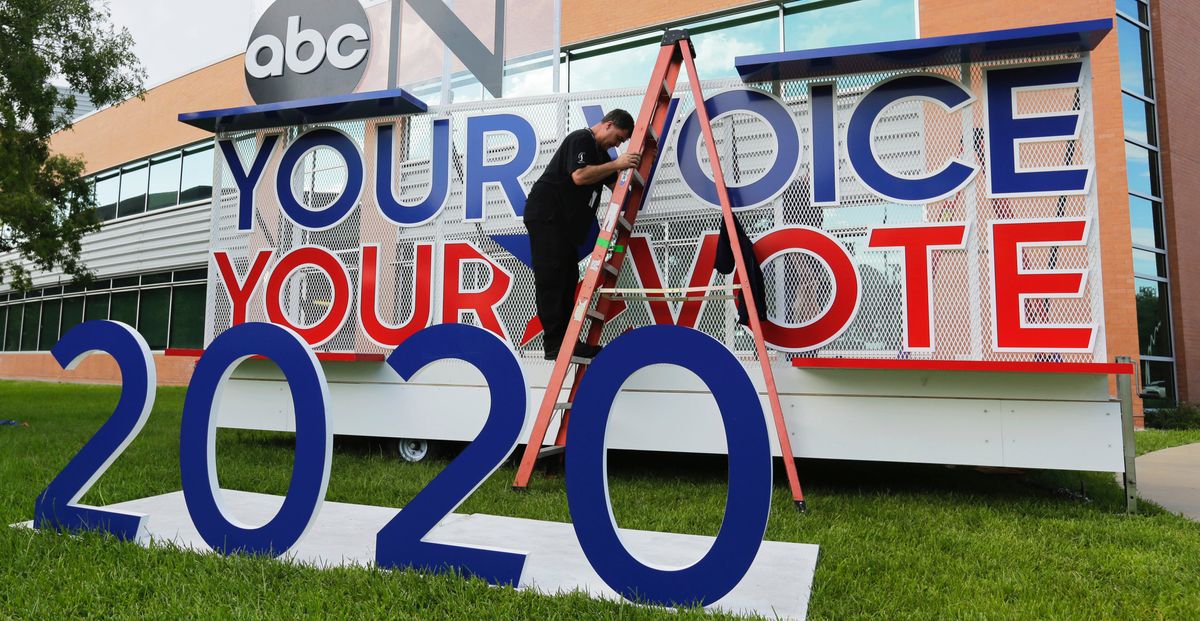
Biden, Sanders, Warren Finally Square Off in Democratic Presidential Debate
VOA’s Russian Service contributed to this report.
WASHINGTON — The 10 leading U.S. Democratic presidential candidates are debating Thursday night, but the focus is likely to be on the three top-polling contenders — former Vice President Joe Biden and Senators Elizabeth Warren and Bernie Sanders. The other seven will have to scramble to try to edge their way into the top tier of challengers.
The nationally televised debate in Houston, Texas, is the third in a string of Democratic presidential debates ahead of next year’s party election contests to pick a nominee to face President Donald Trump, the Republican incumbent trying to win a second White House term in the November 2020 national election.
The three-hour debate is the first since late July. It also is only a single encounter this time on one night rather than two consecutive nights. Ten more trailing candidates failed to meet Democratic Party requirements to merit a spot on Thursday’s debate stage — campaign donations from at least 130,000 people and at least 2% support in four polls across the U.S. or in states with the earliest voting next year.
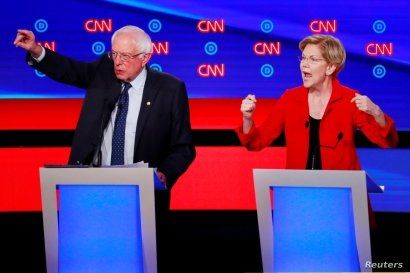
Tightening race at top
The first party nominating contests start in February, but since the last debates six weeks ago, numerous national polls of Democratic voters show a tightening race at the top of the crowded field of challengers, with the remainder of the candidates trailing far behind.
Biden, former President Barack Obama’s two-term vice president, and for 36 years a U.S. senator, is leading with about 30% support. Warren, a former Harvard law professor, and now a senator from the northeastern state of Massachusetts, and Sanders, a self-identified democratic socialist and senator from the neighboring state of Vermont, are virtually tied in most polling. Warren and Sanders are about 10 points or so behind Biden nationally, but closer or even ahead of Biden in some early-voting states. No other candidates are registering above single digits in national polling.
Biden is likely to face a barrage of taunts from Warren and Sanders, the two candidates flanking him on the debate stage. Both of them are vying for support from the most liberal Democratic voters. The seven other candidates on the debate stage could target all three front-runners and each other on a range of issues, including health care, immigration and border security, taxes and income inequality in the U.S., gun violence, race relations and more.
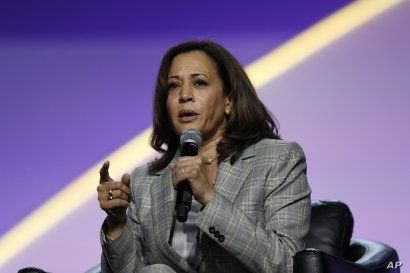
The seven trailing candidates include three senators, Kamala Harris of California, Cory Booker of New Jersey and Amy Klobuchar of Minnesota; South Bend, Indiana, Mayor Pete Buttigieg, former U.S. housing secretary Julian Castro, former Texas congressman Beto O’Rourke, and entrepreneur Andrew Yang.
Changing debate dynamic
Christian O. Lundberg, an associate professor at the University of North Carolina who specializes in debate and public speaking, said “it will change the dynamic significantly to have all the contenders on the same stage.”
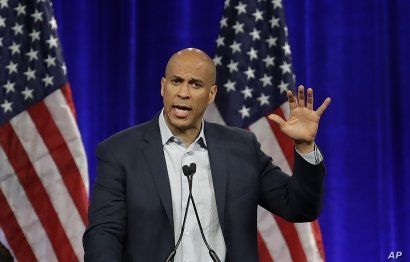
“Biden’s going to really have to demonstrate some command of details and of the debate stage, and he’ll look to make a real mark there,” Lundberg told VOA. “And then there’s all kinds of interesting places where candidates are going to have to make distinctions between themselves.”
The health care debate is likely to be contentious.
Both Sanders and Warren support a government-run health insurance program common in some other Western democracies, calling it Medicare for All, an expansion of the existing U.S. health insurance program for older Americans. Meanwhile, Biden supports more incremental changes to improve the national health policies adopted when he was Obama’s No. 2. The health care plan, popularly known as Obamacare, added millions of people, but not everyone, to health insurance rolls to help them pay their medical bills.
Biden, Warren showdown
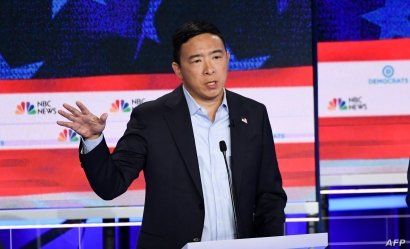
Through the luck of the draw on which night candidates appeared at the earlier debates, Warren has not been on the same debate stage as Biden until now.
Over the years, they both have supported some Democratic legislative initiatives, but they also have clashed.
In one instance years ago, Warren, then a law professor who had researched the reasons why middle-class Americans end up bankrupt, opposed Biden’s 2005 effort, which ultimately was successful, to make it tougher for consumers to declare personal bankruptcy to get out of debt.
At the time, Biden was a senator representing the eastern state of Delaware, where numerous banks are headquartered, but Warren assailed his policy stance as anti-consumer. Her protest of Biden’s support for the banks later drew her into politics.
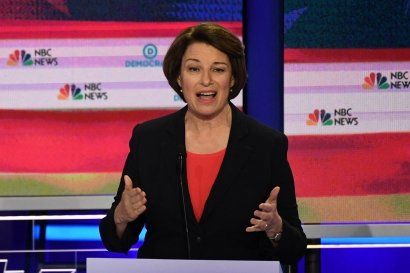
Polls across the country often show Biden defeating Trump in hypothetical matchups next year, with Sanders also defeating the president, although often by smaller margins than Biden. Polls often show Warren running neck-and-neck with Trump, but sometimes ahead of the president, as well.
Biden’s boasts
Biden has used his poll-leading status as his main campaign pitch for why he ought to be the nominee, a consensus choice, he says, to do the one thing Democrats most want: deny Trump a second four-year term.
“Four years of Donald Trump would be an aberration in American history,” Biden likes to tell voters. “Eight years will fundamentally change who we are as a nation.”
Polling aside, Biden’s anointment as the Democratic nominee is anything but certain. Gambling sites in the U.S. and abroad have Warren as the favorite to eventually overtake Biden for the nomination.
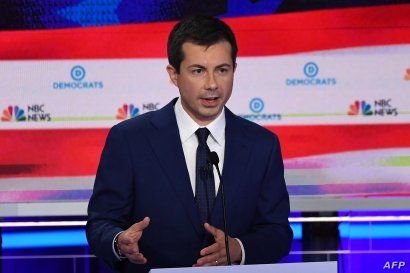
Some Democrats view the 76-year-old Biden as too old to take on the nearly-as-old Trump, 73. Sanders is even older, 78, while Warren is 70. Biden’s more center-left political views on a number of issues, such as on health care policy and get-along relations with opposition Republicans, are at odds with Democratic candidates like Warren, Sanders and party stalwarts who have adopted more progressive stances to shake up Washington.
Concerns about Biden’s gaffes
Moreover, Biden has raised new worries with his at-times stumbling remarks on the campaign trail. He has acknowledged he is a “gaffe machine,” with his misstatements piling up in recent weeks, magnified time and again by repeat showings on social media accounts.
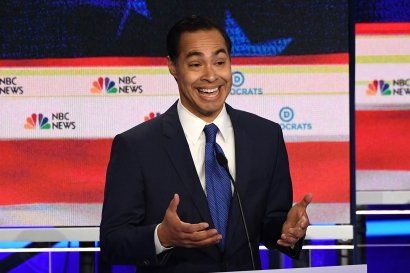
Biden has told crowds he is delighted to be in their state, but named the wrong state. He misidentified where two mass shootings occurred in August, even though it was only a day after the mayhem unfolded, killing 31 people. He flubbed a line about how minority children can succeed in America, botched his conclusion about Trump changing the nation at the end of the July debate and added to the confusion by asking supporters to donate to his campaign at a non-existent web site.
Whether any of his lapses matters is an open question among political pundits in the U.S. Voters so far have not seemed to care, with Biden holding a steady lead in the polls.
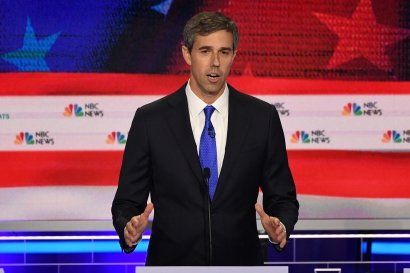
“I think Joe Biden likely has to counteract a narrative that’s been floating around recently about him,” said Lundberg, co-director of the University Program in Cultural Studies at North Carolina. As for Warren and Sanders, “there’s not been a real sustained interaction” between the two, yet “they’re kind of occupying the same lane.”
“Sanders has stalled a little bit,” he added. “And Warren has definitely, I think, got significant momentum, and so it’ll be interesting to see how that dynamic also plays out between them on the debate stage.”
 Trump Headed to ‘Rodent Infested Mess’ BaltimoreNext PostHouse Judiciary Committee to Vote on Parameters for Trump Impeachment Probe
Trump Headed to ‘Rodent Infested Mess’ BaltimoreNext PostHouse Judiciary Committee to Vote on Parameters for Trump Impeachment Probe
